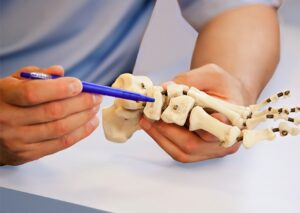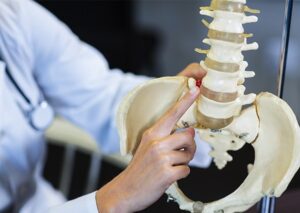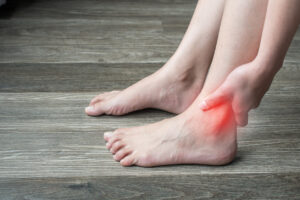Symptoms, Causes & Treatment of JointPain
Causes of Joint Pain
What causes joint pain and how can you find pain relief? The answer depends on the underlying cause of your pain.
Some conditions that cause joint pain include:
- Osteoarthritis
- Infections
- Fibromyalgia
- Gout
- Hypothyroidism
- Dislocation, broken bone, strains, sprains, or other injury or trauma
- Lupus or other autoimmune disorders (e.g. rheumatoid arthritis)
- Diseases such as Lyme disease
- Bursitis
- Some sexually transmitted diseases such as chlamydia and gonorrhea
Diet, use of alcohol, dehydration and taking certain medications can worsen joint pain or trigger an attack of gout. Being overweight can also contribute to joint pain due to the extra stress on the affected joints.

Joint Pain Symptoms and Diagnosis
As with all pain issues, be sure to discuss all your symptoms with your doctor. It is particularly important to see your doctor if your joint pain is accompanied with swelling, redness or warmth around the joint. It is more urgent to see your doctor if you see any joint deformity, cannot use your joint, or are experiencing a sudden or intense pain with or without swelling.
Symptoms of joint pain can include:
- Joint pain, stiffness and weakness
- Redness, tenderness and swelling of the joint
- Reduced range of motion in the affected joint
- Change in how you walk or move due to pain (limping)
- Locking up of the joint
- Muscle cramps
To diagnose the cause of your pain, your doctor will ask you questions about your health and family history, and will do a physical examination. Other tests that can help diagnose the source of your pain include X-rays, MRI scan, CT scan and blood tests. It is important that your condition is properly diagnosed so that you can receive the most effective and appropriate treatment.

How to treat joint Pain
Your treatment options will depend on the underlying cause and severity of your pain. Many causes of joint pain resolve with minimal or no treatment, or respond well to basic home-care. Treatments for joint pain can range from simple lifestyle modifications and home care, to prescription medications, injections, physical therapy and other medical treatments.
Adequate hydration and dietary modifications can also help reduce joint pain. Exercise, weight loss in overweight patients, bandaging, rest of the affected joint(s) and chiropractic treatments can also be beneficial.
For mild joint pain relief, you may choose to start with home treatments, such as:
- Over-the-counter pain relievers
- Allowing your joint to rest by using it less whenever possible
- Applying cold packs to the joint
- Using heating pads or taking a warm bath or shower
- Use a brace or wrap to compress the joint and protect the joint area
- Elevation of the joint above heart-level
Over-the-counter aspirin, acetaminophen or ibuprofen can be effective for certain types of joint pain when taken according to instructions.
Some of the medical therapies we provide for joint pain at The Total Pain Clinic include:
Medication management involves the pain specialist prescribes and regulates the medication that you use to help control your joint pain. The pain management specialist will provide you with the knowledge you need to take your pain medications properly.
The Total Pain Clinic takes a conservative approach with medication management and we limit prescription medications to help avoid dependence and unwanted side effects.
One option for treating joint pain is to inject dexamethasone, a steroid that helps reduce pain and inflammation. This can be very effective for arthritis, rheumatoid arthritis and osteoarthritis. Joint injections can also be used to remove extra fluid from joints affected by arthritis and other painful joint conditions.
Neuromodulation treatments use low-voltage electrical pulses to block the sensation of pain.
Contact The Total Pain Clinic today to learn more about how we can help you effectively manage your leg pain.

When further joint pain treatment is required
Based on the underlying condition, further treatments may be required. If there is something that can be addressed by another type of specialist, we will refer you to the appropriate specialty doctor.




















